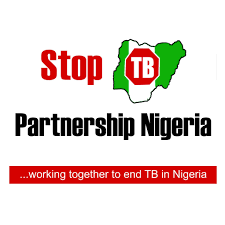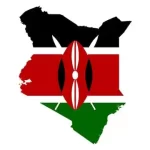By Hassan Zaggi
Following the strategies put in place by both the government and stakeholders in the fight against Tuberculosis (TB) in Nigeria, the country is currently on right track to ending the disease.
The Vice Chairman Global Stop TB Partnership in Geneva, Chief Austin Obiefuna, who stated this while responding to questions from journalists at the Pre-United Nations High Level Meeting (Pre-UNHLM) on TB, however, said that the country needs more resources to intensify the fight against the disease.
“Nigeria is on the right track but what it needs to do is put in more resources in order to engage people and acquire the latest tools because how do you intend to end TB when you still use moribund tools, unless we use current tools like the Gene-Xpert, with which you can do test to know if the person is having drug resistant TB because ill management of TB can also be a big problem.
“Nigeria has made progress in TB response. We have made progress in the area of case finding, innovations and even funding for TB.
“We have improved in a number of areas in TB treatment and even leadership and governance as it relates to TB. However, there are areas Nigeria still needs to improve,” he said.
Chief Obiefuna insisted that: “Nigeria has made a lot of progress in terms of its TB intervention and most times they don’t talk about it but sometimes we need to promote the good things that we do because a lot of countries are looking forward to seeing how strong our interventions are.
“Nigeria was able to increase its case findings during the COVID-19 lockdown because the bedrock of every TB management is actually finding the people.
“In Nigeria a lot of interventions have been in place, we have undertaken prevalence survey so we know the burden of the TB in our country.
“So it is about the rollout of interventions that we have that we are trying to make sure we engage everybody to ensure we end TB by 2030 as declared by the World Health Organization (WHO).”
On his part, the Executive Secretary, Stop TB Partnership Nigeria, Mayowa Joel, while recalling some of the successes achieved by Nigeria in the fight against TB said, “one of the successes was during the COVID-19 where so many countries were seeing fewer cases of TB but Nigeria was able to record high cases due to the commitment of all stakeholders.”
Mr. Joel insisted that: “I can tell you that we have made a lot of progress between 2018 when the first UNHLM on TB was held till now. Being able to end TB by 2030 in Nigeria is a different thing entirely but we have made tremendous progress.
“In fact we have made so much progress that we have been able to document our success stories as a compendium which is being shared all over the world.”
He noted that in the forthcoming UNHLM on TB in New York, “Nigeria is going to be a star because of the success we have made in TB prevention. Although it might not translate to Nigeria being able to end TB by 2030 because we need to more resources to intensify and concretize the successes recorded.”
Mr. Joel explained that the Pre-United Nations high level meeting on TB is the national stakeholders consultation where they plan and ensure that “we actively and effectively participate at the UNHLM on TB, holding on the 22nd of September 2023.”
The aim of the Pre-UNHLM National Stakeholders’ Consultation include to review the progress made by Nigeria in comparison with the country targets and political declaration of 2018 UNHLM and to develop a roadmap for coordinated advocacy efforts leading up to the UNHLM-TB and beyond, with a focus on increased domestic resource mobilization and sustainable financing to end TB.
Findings shows that The UNHLM on TB is the most significant political meeting ever held on TB and the biggest opportunity to raise the political priority of TB.
The meeting would result in an ambitious Political Declaration on TB endorsed by Heads of State that will form the basis for the future TB response.
It would secure commitment from Heads of State and governments for a coordinated global response, result in a substantial increase in financial resources for TB, and lead to millions of lives being saved from premature deaths from TB.
The global meeting will also endorse measurable targets and commitments from governments and key stakeholders on which they can be monitored and held accountable through regular reporting.



